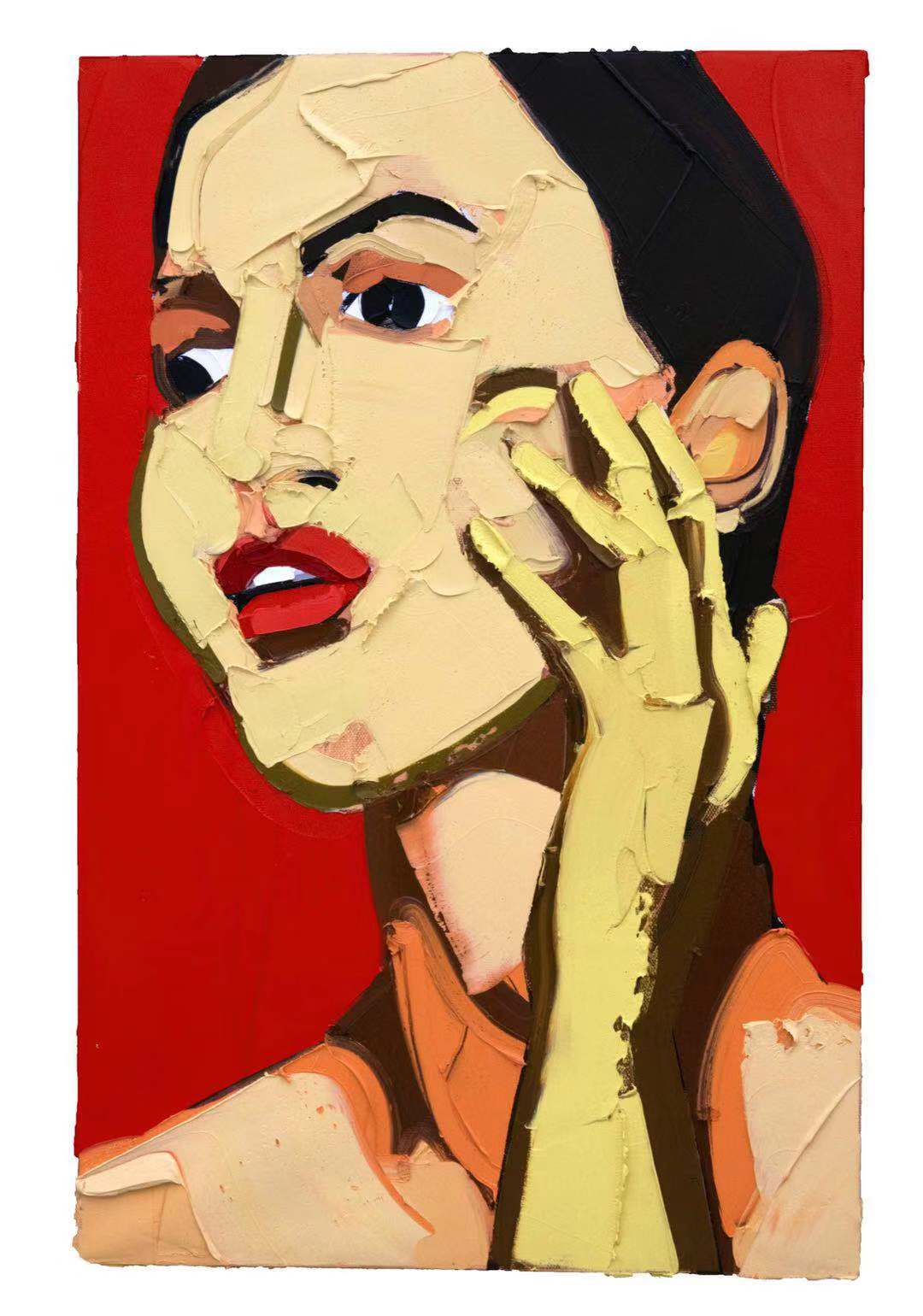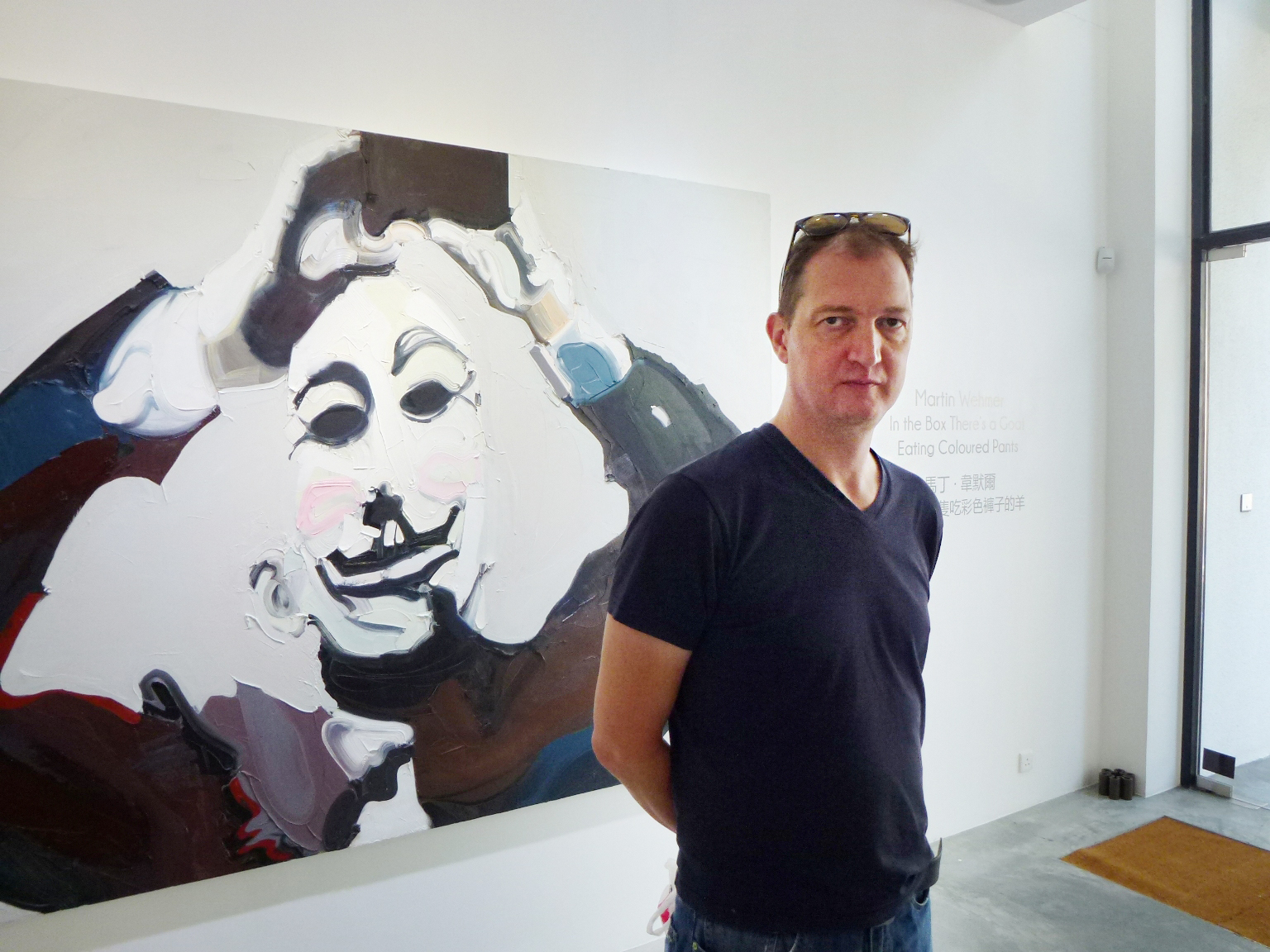
Martin Wehmer’s thick oil paintings bear an abstract style while conveying simple and clearly represented subject matters. Wehmer has a profound understanding of painting as a genre, and fully embraces its restrictive properties. The artist sees his canvas as “a box that offers a whole array of different opportunities and possibilities”. His images are visualizations of the discourses among diverse ways of representations from our history and cultures, as well as the interactions he has with them.
Neither fully representative nor formally abstract, Wehmer’s style is a manipulation of the vast grey area between two ends of a wide spectrum. Nourished by German Expressionism and an admiration of German-born American abstract expressionist artist Hans Hoffman, Wehmer leaves the boldest of traces on the canvas with his palette knives. He draws inspiration from socially relevant goods and his almost fetishistic obsession with certain objects. His artworks are both deeply personal creations and flexible vessels that welcome viewers’ imagination. As Wehmer himself said, “[In the course of artistic creation,] there is always something you can’t control”, the viewers’ reception is merely one of them. Wehmer holds that “if you can accept this, you bring a message”.

Martin Wehmer was born in Blankenstein J. Hattingen, Germany in 1966. He was awarded the Volksbanken art prize in Germany in 1996. He later took up art residencies in Edinburgh and Beijing, and finally decided to settle in Beijing in 2008, where he has lived and worked ever since. He was one of the organizers of the Beijing 798 Biennale in 2009. Wehmer is also a devout art educator. He has been a lecturer at Beijing’s Central Academy of Fine Arts, Tianjin Academy of Fine Arts, and in the CDK project, a joint programme of the University of the Arts, Berlin and the China Academy of Art, Hangzhou, facilitating art exchange between China and Germany. His works have been exhibited extensively around the world, and have been included in important collections such as UBS (Hong Kong, Cologne, Zürich), Kunstkredit Basel and Kultusministerium Kanton Basel.
26.02.2023
19.05.2021
27.03.2019
27.03.2018
20.03.2017
23.03.2016
14.03.2015